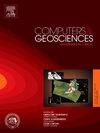利用深度学习分析地震探测:评估预测方法的可靠性和不确定性
IF 4.4
2区 地球科学
Q1 COMPUTER SCIENCE, INTERDISCIPLINARY APPLICATIONS
引用次数: 0
摘要
本研究使用EQTransformer评估地震探测的性能和可靠性,EQTransformer是一种新型的深度学习程序,广泛用于地震观测站和研究中,用于增强地震目录。我们使用哥斯达黎加火山和地震学观测站的地震数据测试了EQTransformer的能力和不确定性,并比较了两种检测方法:简化方法(MseedPredictor)和复杂方法(Predictor),后者结合了蒙特卡罗Dropout,以评估它们在识别地震事件方面的可重复性和不确定性。我们的分析重点是2023年2月18日开始的24小时持续时间数据,当时发生了5.5级主震。值得注意的是,我们观察到具有相同数据和参数化的连续实验产生不同的检测结果和不同数量的事件作为时间的函数。结果表明,利用迭代dropout的复杂方法始终比简化方法产生更高的可重复性和更可靠的检测,简化方法显示出更大的变异性,更容易出现假阳性。本研究强调了在地震事件检测的深度学习模型中选择方法的重要性,强调了对检测算法进行严格评估的必要性,以确保准确和一致的地震目录和解释。我们的研究结果为人工智能工具在地震学中的应用提供了有价值的见解,特别是在提高地震监测工作的精度和可靠性方面。本文章由计算机程序翻译,如有差异,请以英文原文为准。
Analysis of earthquake detection using deep learning: Evaluating reliability and uncertainty in prediction methods
This study evaluates the performance and reliability of earthquake detection using the EQTransformer, a novel deep learning program that is widely used in seismological observatories and research for enhancing earthquake catalogs. We test the EQTransformer capabilities and uncertainties using seismic data from the Volcanological and Seismological Observatory of Costa Rica and compare two detection options: the simplified method (MseedPredictor) and the complex method (Predictor), the latter incorporating Monte Carlo Dropout, to assess their reproducibility and uncertainty in identifying seismic events. Our analysis focuses on 24 h-duration data that began on February 18, 2023, following a magnitude 5.5 mainshock. Notably, we observed that sequential experiments with identical data and parametrization yield different detections and a varying number of events as a function of time. The results demonstrate that the complex method, which leverages iterative dropout, consistently yields more reproducible and reliable detections than the simplified method, which shows greater variability and is more prone to false positives. This study highlights the critical importance of method selection in deep learning models for seismic event detection, emphasizing the need for rigorous evaluation of detection algorithms to ensure accurate and consistent earthquake catalogs and interpretations. Our findings provide valuable insights for the application of AI tools in seismology, particularly in enhancing the precision and reliability of seismic monitoring efforts.
求助全文
通过发布文献求助,成功后即可免费获取论文全文。
去求助
来源期刊

Computers & Geosciences
地学-地球科学综合
CiteScore
9.30
自引率
6.80%
发文量
164
审稿时长
3.4 months
期刊介绍:
Computers & Geosciences publishes high impact, original research at the interface between Computer Sciences and Geosciences. Publications should apply modern computer science paradigms, whether computational or informatics-based, to address problems in the geosciences.
 求助内容:
求助内容: 应助结果提醒方式:
应助结果提醒方式:


